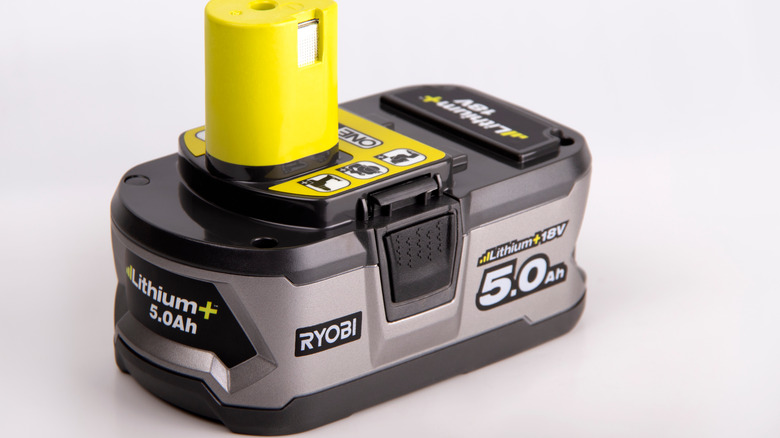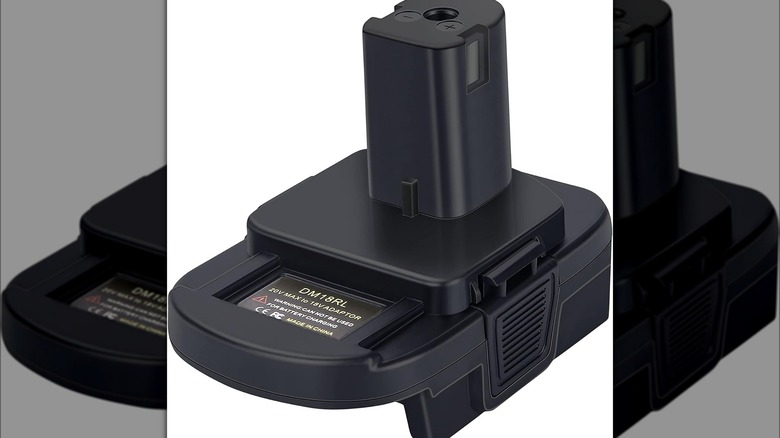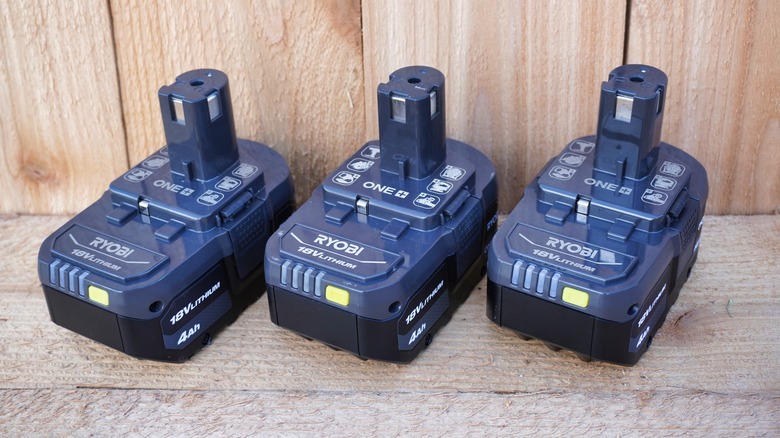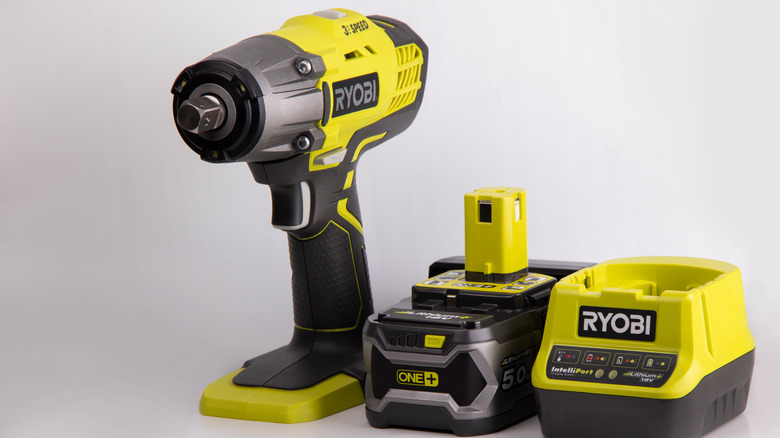What Are Ryobi Battery Adapters, And How Do They Work?
We may receive a commission on purchases made from links.
Battery-powered tools have become a major staple of the entire hardware industry, to the point that just about every prominent hardware brand has a line of battery packs designed explicitly for its own products. If you ascribe more-or-less exclusively to a single brand of power tools, this isn't a big deal, but if you mix and match from a bunch of different brands like DeWalt, Milwaukee, or Ryobi, then you may encounter a slightly annoying situation: needing to purchase new battery packs to go with every new tool you buy instead of using the ones you already have. Those battery packs aren't cheap, so it's understandable to look for alternate routes.
If you've just purchased a new Ryobi tool, for example, but have only used Milwaukee tools in the past, then you've probably got a bunch of Milwaukee battery packs lying around, but no Ryobi battery packs. Would it be possible to somehow attach a Milwaukee battery pack to that Ryobi tool, despite the compatibility problem? The answer is yes, if you use a battery adapter, though whether you should is another matter.
What is a battery adapter?
A battery adapter is pretty much exactly what it sounds like: an adapter for a Ryobi-branded tool that would allow you to hook up a battery pack from a different hardware brand. These take the form of simple plastic plugs that you insert into a Ryobi tool's usual battery pack slot, followed by hooking a differently-branded battery pack onto the bottom.
On paper, the concept is fairly straightforward. Electricity is electricity, so as long as the connection is sound, the Ryobi tool should be able to receive an electrical charge from the third-party battery via the adapter, allowing you to use it as you normally would. The only sticking point is that different battery adapters, much like the battery packs themselves, are designed specifically to attach to different brands. For example, if you bought a Ryobi to DeWalt battery adapter, you would only be able to plug it into a Ryobi tool and attach a DeWalt battery pack. It's convenient if you only use two brands of power tools, but if you use many different brands, things might get just as messy as juggling battery packs usually is.
Are these official Ryobi products?
Here's the first major problem when considering Ryobi battery adapters: they're not official Ryobi products. Ryobi does not make battery adapters for other brands — putting aside any potential rights issues that would come with using another brand's proprietary connectors, it doesn't really make sense for them to offer you an option to use third-party packs when it's more profitable for them to keep you in their ecosystem.
Battery adapters are exclusively manufactured and sold by third parties, either on said third parties' websites or through retailers like Amazon. As with just about any home device, using it in concert with a third-party product like a battery adapter runs the risk of voiding the device's warranty. After all, if you accidentally break your Ryobi power drill as a result of using a third-party adapter and battery pack, that isn't really Ryobi's fault, so it won't replace it for you.
Is it safe to use a power tool battery adapter?
Generally speaking, unless you have a really good reason for doing so, it's not a good idea to use a battery adapter with your Ryobi tools. There are two reasons for this: first and foremost, Ryobi battery packs are designed to work with Ryobi tools, and we don't just mean in the way they physically connect. Tools in Ryobi's ONE+ ecosystem receive power from Ryobi batteries in a very specific way intended to regulate the delivery and consumption of electricity. When you use an adapter and third-party battery, you mess up the line of communication between the device and the battery. The device might still get the power, but it will do so in a poorly optimized way.
This leads us to the other major reason you shouldn't use a battery adapter: burn-outs. Different hardware brands use different battery technologies for delivering power. Without the built-in optimizations and protections that come with a proper Ryobi battery pack, you could put your tool on the fast track to failure. In the worst-case scenario, the tool could draw too much power too quickly, which can cause both the motor on the tool to overheat and burn out and the attached battery to fail completely.
As annoying as it is to put up with multiple battery pack brands, it's in the overall best interest of both your tools and your wallet to just play by the rules.



